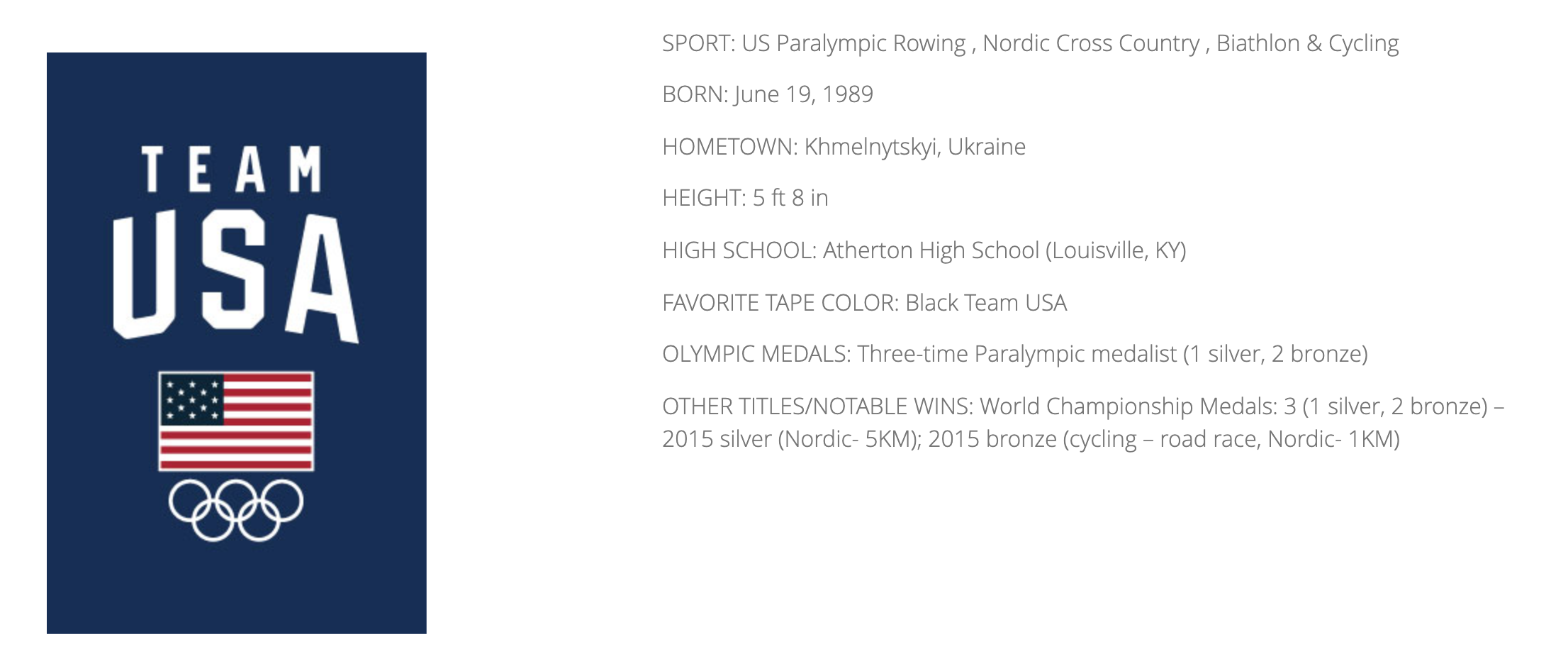服务热线
010-52453172

Born in the Ukraine, Oksana Masters spent her first 7 ½ years being shuttled between orphanages wondering if she would ever be adopted. Given that she had birth defects from the aftermath of the Chernobyl nuclear reactor accident, her chances seemed slim. Oksana was born with her left leg 6 inches shorter than her right, an extra toe on each foot, a missing bone in both legs, missing bones in a knee, hands with 5 fingers and no thumb, webbed fingers, one kidney, and missing parts of her stomach.
After seeing a photo of Oksana in a Ukrainian adoption notebook; Gay Masters, a single woman from Buffalo, New York, knew Oksana was the child missing in her life. After 1 ½ years of trying to adopt Oksana, Gay was finally able bring her home to the United States. While Oksana had been able to walk on her tippy toes to get around, as she grew, her left leg could no longer bear her weight. At age 9, she had her leg amputated above the knee. At age 14, she had her other leg amputated. “It was really hard to stay positive when my legs were amputated,” says Oksana. “Being in the hospital without friends was hard and the healing took longer due to the poor nutrition I had experienced in the orphanages.”

@OksanaMasters
STATS


Determined to live life to the fullest, Oksana began rowing at age 13. The push and pull of rowing was very therapeutic and it became a good distraction. As Oksana continued to row, she became stronger and hoped to one day compete at an elite level.
In 2012, Oksana and her teammate, Rob Jones, won a bronze medal at the 2012 Paralympic Games in mixed double skulls. Soon thereafter, she was named U.S. Rowing’s Female Athlete of the Year for 2012. Later in 2012, Oksana was invited to the U.S. Paralympic Nordic ski team camp in Colorado. With the advantage of upper body strength and endurance from rowing, cross country skiing turned out to be another great fit for her. In 2014, she won a silver medal in 12 km and a bronze medal in 5 km cross-country skiing in the Sochi Games.
Due to a back injury, Oksana could no longer row competitively, so she began handcycling as a summer cross training sport. After winning 2 bronze World Cup and 1 bronze World Championship medals in 2015, she discovered another sport she could excel in.
Although Oksana hasn’t tried many other adaptive sports, she is really good at quad rugby which involves slamming her wheelchair into opponents. “I love the adrenaline rush I get from it,” says Oksana. At the 2016 Paralympic Games, Oksana placed fourth in the hand cycling event. While she was disappointed she didn’t medal, Oksana was grateful for the experience and being able to represent Team USA. Says Oksana of her experience, “I’m really happy because I learned a lot from the race. It’s amazing that I was even able to compete in my third Paralympics in a row.”